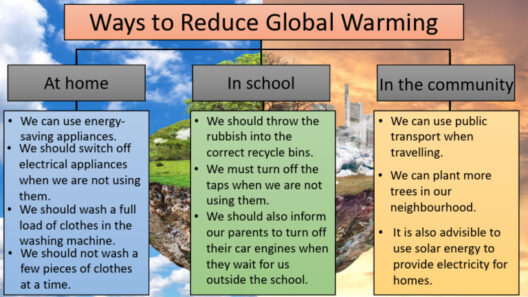In the discourse surrounding global warming, the term “criteria” emerges as a pivotal concept, elucidating the benchmarks and standards that guide our understanding and response to this pressing issue. Defining what we mean by criteria within this context is essential to establish how we evaluate the severity of climate change and the effectiveness of potential solutions. Understanding these standards not only shapes our approach to environmental policy but also engenders a more profound grasp of the implications of global warming on humanity and the planet.
The myriad dimensions of criteria relating to global warming can be dissected into various categories, each highlighting an essential characteristic of climate science. From scientific methodologies to socio-economic considerations, each strand weaves into the intricate tapestry of our environmental future.
The Scientific Standards of Criteria
At the heart of any discussion concerning global warming lies scientific criteria—parameters established by rigorous research and empirical data. These standards are grounded in peer-reviewed studies and climate modeling that allow researchers to quantify the effects of greenhouse gases, temperature anomalies, and oceanic changes.
One significant criterion is the Intergovernmental Panel on Climate Change (IPCC) guidelines, which serve as an authoritative framework for assessing climate science. Their reports compile a wealth of data, detailing the extent of global warming and its potential impacts. This body of work enables policymakers and scholars alike to use a common language when discussing climate phenomena. For example, temperature rise above the 1.5-degree Celsius threshold—a critical benchmark delineated by climate scientists—establishes a crucial point of reference for global emissions reduction targets.
Scientific criteria also include assessments of climate models that simulate future environmental scenarios. The sophistication of these models speaks volumes about their predictive capabilities; however, reliance on them requires a nuanced understanding of their parameters and the uncertainties involved. Critics may argue that some models are overly reliant on past data and fail to account for unforeseen variables, highlighting the importance of constantly evolving criteria that adapt to new findings and approaches.
The Societal Impact of Criteria
Transitioning from the scientific to the social, we encounter a set of criteria that delves into the human aspect of climate change. This dimension emphasizes sustainability metrics and the social contract underlying our interaction with the environment. The criteria here are nuanced, encompassing economic, equitable, and ethical considerations that influence decision-making in a world facing the devastating consequences of global warming.
For instance, what constitutes “sustainable” energy? Is it simply renewable sources, or does it extend to how the extraction and implementation processes affect local communities? The aesthetic appeal of green energy not only lies in its ecological advantages but also in its capability to harmonize with societal values. Therefore, evaluating energy sources through criteria encompassing human impact creates a holistic view of sustainability.
The Global Governance Framework
The criteria surrounding global governance illuminate the frameworks through which nations cooperate to combat climate change. The Paris Agreement exemplifies international efforts to establish criteria focusing on nationally determined contributions (NDCs). Herein lies a delicate interplay of ambition and accountability as countries negotiate their targets based on unique economic contexts and capacities for change.
This collaborative spirit, however, is fraught with tension. Disparities in development levels necessitate differentiated criteria that account for historical emissions and current capabilities. Should wealthier nations shoulder a greater burden? Or do all countries bear equal responsibility for enacting solutions? These questions highlight the intricate dynamics of environmental ethics that underpin global warming discussions.
In establishing global criteria, issues of justice and equity become paramount, as marginalized communities often face the brunt of climate change while contributing the least to its causes. The criteria for evaluating success must therefore be inclusive, ensuring voices from all sectors of society contribute to the overarching narrative of climate action.
Innovating Criteria for the Future
Despite the numerous existing standards, the ever-evolving nature of climate science compels us to innovate and adapt criteria. Technological advances in carbon capture and storage, alongside renewable energy technologies, necessitate a re-evaluation of current benchmarks to remain relevant. As innovative solutions arise, criteria must reflect the dynamic nature of scientific advancements, ensuring that our approaches remain effective and evidence-based.
Moreover, public engagement plays a critical role in establishing pertinent criteria. It is essential to foster a culture of awareness that encourages individuals to understand the intricacies of climate change criteria. Education and outreach initiatives cultivate informed citizens capable of advocating for sound environmental practices and sustainable policies. Individuals armed with knowledge can serve as pivotal agents of change, influencing the trajectory toward a more sustainable future.
The allure of robust criteria in the fight against global warming lies not merely in their utility but in their potential to unite diverse stakeholders. By defining what constitutes meaningful action, we can bridge gaps between nations, foster new partnerships, and invigorate collective efforts to safeguard the planet. In the end, the criteria we establish will serve not only as a framework for understanding the present but as a beacon of hope illuminating the path toward a sustainable and equitable future.






